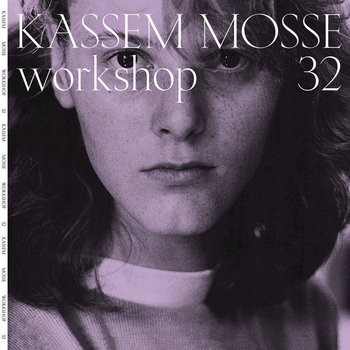One of the most eccentric characters to emerge from Lisbon's musical underground Teteu has operated under a variety of shadowy monikers including Qraqmaxter CiclOFF and Erre Mente. A gifted visual artist as well as a composer he's known for developing a philosophical mythology with his drawings mostly using a ballpoint pen to sketch out elaborate anime-style projects. Normal Nada is Teteu's most enduring project and a full eight years after the game-changing ep ""Transmutaçao Cerebral"" he has finally assembled his long-awaited debut album. ""TRIBAL PROGRESSIVE HEAVY METAL"" materializes into Nada's meta-kuduro multiverse developed from his deep knowledge of African and Portuguese musical forms. Years ago he was an established archivist and genre historian sharing archival material mixes and rips alongside his original tracks and while his online presence has faded his rate of production hasn't. His tracks are rooted in Angolan kuduro and tarraxinha structures but Normal Nada uses this only as a starting point poetically overlaying and superimposing elements from trap bass music heavy metal and ambient sources to tell a story that's personal and unique. Listening to the album is like channel hopping through an interplanetary animated matrix blasting off from colorful opener 'Beautyful Caos' with its grinding syncopation crash-landing on the subversive 'Batida Hard Trance 2' that dissolves awkward European dance tropes into industrial-strength Portuguese electronix and scuttling towards the album's bizarre title track that juxtaposes crunching overdriven drones 'n tones with kinetic kuduro rhythms. 'Alive' is even more cacophonous layering machine-strength orchestral hits over militaristic rolling 4/4 beats and unsettled subs. Born and raised in the Republic of Guinea-Bissau in West Africa Normal Nada migrated to Portugal at 13 and was based for many years in Lisbon's San Antonio Dos Cavaleiros housing projects after previously having lived in the Algarve. Teteu's compositions are a spiked expression of Lisbon's patchwork of batida styles making a direct link to West Africa's vibrant musical legacy. Now he's returned to Guinea-Bissau and his music reflects this outstretched knowledge and energy with a 360 degree view of the world's complex assemblage of cultures and conflicts. The album's somber finale is the best representation of his philosophy a minor-key downtempo slow-burner that could sit comfortably alongside Actress or tarraxinha pioneer DJ Znobia. Called 'Dedicated to the Homeless' it shines flickering neon light on the world's unseen population searching for hope where too many of us choose to look away."

